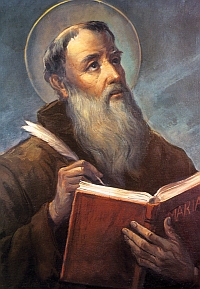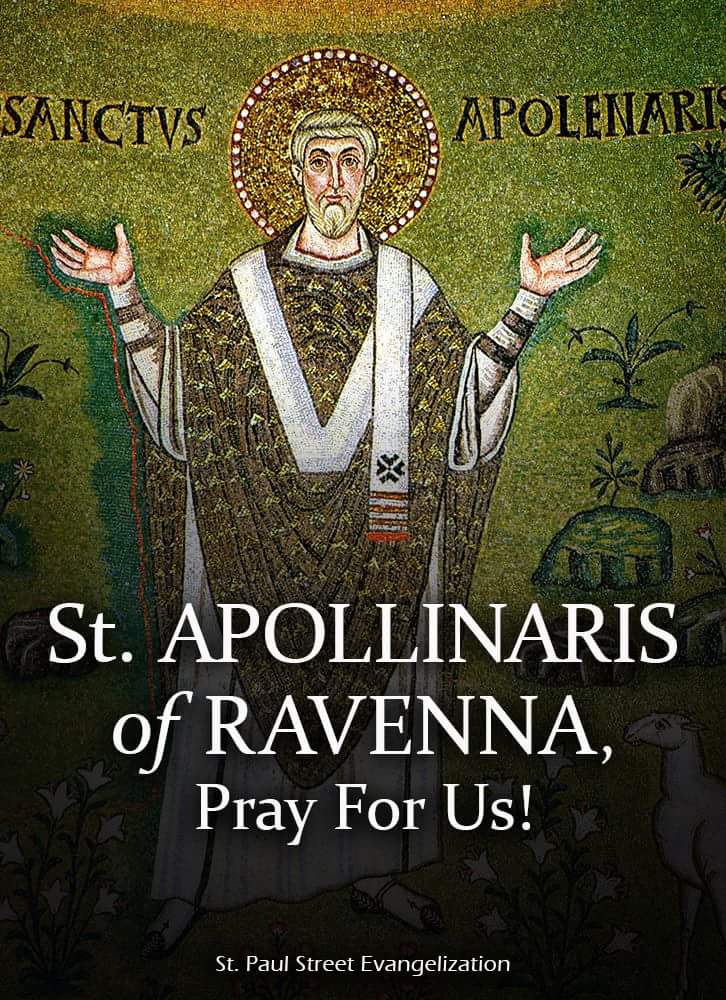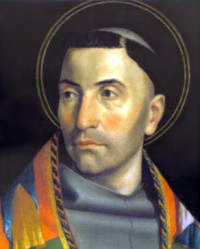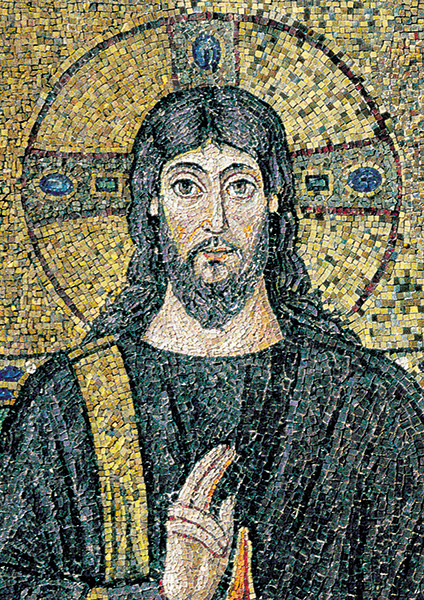Thursday, July 30, 2020
Wednesday, July 29, 2020
Tuesday, July 28, 2020
Deepen ing your own self
“He who attempts to act and do things for others or for the world, without deepening his own self-understanding, freedom, integrity and capacity to love, will not have anything to give others...”
- Thomas Merton
Sunday, July 26, 2020
The Long Loneliness
Dorothy Day
The Long Loneliness
Thursday, July 23, 2020
The parables of Jesus

Friends, in today’s Gospel, Jesus explained that he spoke in parables to baffle the crowds, who “look but do not see and hear but do not listen or understand.” The parables of Jesus are often exercises whose purpose is to confuse and confound the hearer, overturning her expectations and upsetting her theological convictions.
God is just, but in light of the parable of the vineyard owner, one realizes that the ordinary notion of justice only vaguely indicates what divine justice is like. God is compassionate, but after hearing the story of the prodigal son, one knows that divine compassion infinitely surpasses even the most radical mode of human love.
But why is the biblical God so elusive? Because he brought the whole of the finite universe into existence. God must be other in a way that transcends any and all modes of otherness discoverable within creation.
Wednesday, July 22, 2020
St. Mary Magdalene
Mary Magdalene found the greatest of all possible second chances in Christ’s offer of forgiveness.
She rests as one who believes in Christ. In very real sense, each of us is a sinner whom Christ loves enough to save as well.
Tuesday, July 21, 2020
Saint Lawrence of Brindisi
 Saint Lawrence of Brindisi was born in Italy in 1559. After he was ordained a priest, he devoted his life to preaching. He was most attentive to correcting the errors by Reformation preaching. Because he spoke eight languages, he was a popular and powerful preacher in several countries.
Saint Lawrence of Brindisi was born in Italy in 1559. After he was ordained a priest, he devoted his life to preaching. He was most attentive to correcting the errors by Reformation preaching. Because he spoke eight languages, he was a popular and powerful preacher in several countries.Lawrence became known for his goodness, his simplicity, and his prudence as a teacher. He was especially devoted to the Blessed Virgin. Besides being the superior general of about 9,000 Capuchin friars in Italy, France, Belgium, Spain, and Switzerland, Lawrence had a splendid reputation as a missionary and as a diplomat. In 1959, Pope John XXIII declared him a Doctor of the Church.
Monday, July 20, 2020
Saint Apollinaris
Unwilling to take no for an answer, Saint Apollinaris was exiled from Ravenna several times, but he always returned trying to preach the good news to the people. He finally died of a beating he received in a suburb of Ravenna.
Sunday, July 19, 2020
Saint Mary MacKillop
Saint Mary MacKillop and her Sisters (the Sisters of St. Joseph of the Sacred Heart, also known as the Josephite Sisters)were able to offer social services that few, if any, government agencies in Australia could. They served Protestants and Catholics alike. They worked among the aborigines. They taught in schools and orphanages and served unmarried mothers.
Money, actually the lack of it, was a constant worry. But the Sisters who begged from door to door, were bolstered by faith and by the conviction that their struggles were opportunities to grow closer to God.
By the time Mary was approaching the end of her life, the congregation was thriving. She died in 1909 at the age of 67. Pope John Paul II beatified her in 1995. In 2010, when Pope Benedict XVI canonized her, she became Australia’s first saint.
Saturday, July 18, 2020
Love thy neighbor
"A man must not choose his neighbor: he must take the neighbor that God sends him. The neighbor is just the man who is next to you at the moment, the man with whom any business has brought you into contact."
— George MacDonald
Friday, July 17, 2020
Saint Junípero Serra
- Bishop Robert Barron
Thursday, July 16, 2020
Our Lady of Mt. Carmel

The title of the Mother of God as “Our Lady of Mt. Carmel” evokes the devotion of the brown scapular with its assurances of the grace of final perseverance, humility, and contrition that are promised to the wearer of the scapular at the moment of death.
But this title of Our Lady is deeper than this popular devotion.
The Mother of God is the patroness of the Order of Carmelites, professed men and women religious who trace their spiritual lineage to the prophet Elijah, who lived on Mt. Carmel in the Holy Land.
Our Lady of Mt. Carmel shouts out tells us, as Elijah and the prophets did centuries ago, to repent and believe—for the Lord in his might is coming and he is coming to set this world right.
Wednesday, July 15, 2020
St. Bonaventure
Tuesday, July 14, 2020
Saint Kateri Tekakwitha
 |
| Saint Kateri Tekakwitha at Founder's Hollow |
Saint Kateri Tekakwitha repeats the example of all the saints: Holiness thrives on the cross, anywhere. Yet she did have what Christians - all people - need: the support of a community. She had a good mother, helpful priests, Christian friends. These were present in what we call primitive conditions, and blossomed in the age-old Christian triad of prayer, fasting and almsgiving: union with God in Jesus and the Spirit, self-discipline and often suffering, and charity for her brothers and sisters.
Monday, July 13, 2020
Marianist Monday
July 2020
My Dear Graduates of Chaminade, Kellenberg, and St. Martin de Porres Marianist School,
Do you remember when we were not all wearing masks in public? It wasn’t that long ago, really. Actually, less than half a year. I remember one “unmasked” day quite vividly. It was the evening of March 4, 2020. I had agreed to pick up my younger sister Michele at JFK’s Terminal 4. She was flying in from Maine on a Delta domestic flight, to visit our mom for the weekend. As I waited for Michele in the arrivals hall, I remember seeing quite a few passengers from overseas flights wearing masks that covered their nose and mouth. “Oh, this is a little premature, a bit paranoid,” I thought to myself. “What are they afraid of?”
Well, we soon found out. Exactly eight days after I dropped my sister off at our mom’s Port Washington apartment, Chaminade, Kellenberg, and St. Martin’s all closed, as did every other school in the New York Metropolitan Area. Ten days later, New York’s statewide stay-at-home order went into effect, and only now, as I sit down to write this reflection, are we entering stage 2 of a phased reopening. (When this article appears on social media, Long Island will be entering stage 4.) We found ourselves in the midst of the COVID-19 pandemic, which, as of this writing, has infected 7.9 million people and claimed 435,000 lives worldwide. (Now, 12.1 million cases and 550,000 deaths worldwide.)
As a direct result, we have all learned the importance of wearing a mask in public. Masks block the tiny airborne droplets that we expel as we breathe, speak, sing, cough, and sneeze. Masks help stop the community spread of this highly transmissible disease. Masks are inconvenient, to be sure. But they help stop the spread of a potentially deadly disease. So we wear them; at least most of us do. And that’s a good thing. Wearing a mask takes root in our concern for the common good and in our respect for our neighbor.
 All this got me to thinking that maybe we need to start wearing metaphorical masks as well. What do I mean by this? I mean that, as individuals and as a society, we need to start filtering out the divisive, hateful, infectious speech that threatens to poison our country. We hear and see such speech all the time -- in our circle of friends, on the radio and television, and especially on social media. Indeed, the popular phrase “It’s gone viral” demonstrates the speed with which inflammatory tweets, posts, and videos can infect the body politic.
All this got me to thinking that maybe we need to start wearing metaphorical masks as well. What do I mean by this? I mean that, as individuals and as a society, we need to start filtering out the divisive, hateful, infectious speech that threatens to poison our country. We hear and see such speech all the time -- in our circle of friends, on the radio and television, and especially on social media. Indeed, the popular phrase “It’s gone viral” demonstrates the speed with which inflammatory tweets, posts, and videos can infect the body politic.
Don’t get me wrong. I’m all for free speech. Free speech is enshrined in our Constitution and safeguarded by our laws. Generations of brave servicemen have fought and even given their lives to preserve our cherished rights, among them freedom of speech. That includes the right to protest and to speak out against injustice. Jesus Himself did that!
But, in addition to free speech, I’d like to propose filtered speech. No, I’m not advocating government censorship, nor academic “thought police” who impose conformity to a particular ideology.
What I would suggest, however, is that we filter our own speech. That we would think before we speak. That we would have the humility to keep our gut reactions in check. That we would cool down our heated rhetoric, our angry words, and our self-righteous indignation. As St. Paul advises in the Letter to the Ephesians, “Let no corrupting talk come out of your mouths, but only such as is good for building up, as fits the occasion, that it may give grace to those who hear” (Ephesians 4:29). Or, to put it more simply, “Over all these virtues, put on love” (Colossians 4:13).
Maybe then -- just maybe -- we could start listening to one another instead of shouting at one another. We’ve seen too much of the latter -- shouting at one another -- from polarizing opinions about the pandemic to divisive words about race relations to deep divisions regarding controversial issues within the Church. All sides of the ideological divide need to speak less, or at least less angrily, and listen more.
 Let me offer you another image. Along the wooded, winding paths at our Meribah Retreat House stands a larger-than-life statue of St. Benedict of Nursia (d. 547 A.D.), the Father of Western Monasticism. The statue depicts Benedict placing his left index finger over his lips and holding a book in his right hand. The book is inscribed with a single word, “Listen.” That’s a reference to the famous (famous, at least, among consecrated religious men and women) first line of the Rule of St. Benedict: “Listen, O son, to the master’s precepts; incline the ear of your heart; accept freely the admonition of a loving father; complete it effectively, that you may return through the labor of obedience to Him from whom you have fallen away through the sloth of disobedience.”
Let me offer you another image. Along the wooded, winding paths at our Meribah Retreat House stands a larger-than-life statue of St. Benedict of Nursia (d. 547 A.D.), the Father of Western Monasticism. The statue depicts Benedict placing his left index finger over his lips and holding a book in his right hand. The book is inscribed with a single word, “Listen.” That’s a reference to the famous (famous, at least, among consecrated religious men and women) first line of the Rule of St. Benedict: “Listen, O son, to the master’s precepts; incline the ear of your heart; accept freely the admonition of a loving father; complete it effectively, that you may return through the labor of obedience to Him from whom you have fallen away through the sloth of disobedience.”
Let’s take a lesson or two from the monks of old. Many took a vow of silence, and while I would certainly not propose that, how about a vow of listening? What if we vowed to listen more and to speak less? What if we all pledged to speak respectfully, even kindly, enabling others to actually hear us rather than triggering them to shout over us? What if we endeavored to understand those who disagree with us, rather than demolish them in a debate? I dare say, the world would be a better place. Then, the kingdom of this world would more accurately reflect the kingdom of heaven. Then, God’s vision for his people might be fulfilled: “And we, though many, throughout the earth, we are one body in this one Lord.” (“One Bread, One Body,” by John Foley, S.J., based on St. Paul’s letter to the Galatians.)
As the Psalmist writes, “Set a guard, O Lord, over my mouth; keep watch over the door of my lips!” (Psalm 141: 3). Filter your words. Don’t muzzle them, mind you, but do filter them. Speak softly. Listen attentively. Disagree agreeably. Find common ground. Express your beliefs -- absolutely!-- and do so with both clarity and charity.
Wear a mask -- in all the many senses of those words -- for the health of the body politic, for the health of the Body of Christ.
On behalf of all my Marianist Brothers,
Bro. Stephen Balletta, S.M.
My Dear Graduates of Chaminade, Kellenberg, and St. Martin de Porres Marianist School,
Do you remember when we were not all wearing masks in public? It wasn’t that long ago, really. Actually, less than half a year. I remember one “unmasked” day quite vividly. It was the evening of March 4, 2020. I had agreed to pick up my younger sister Michele at JFK’s Terminal 4. She was flying in from Maine on a Delta domestic flight, to visit our mom for the weekend. As I waited for Michele in the arrivals hall, I remember seeing quite a few passengers from overseas flights wearing masks that covered their nose and mouth. “Oh, this is a little premature, a bit paranoid,” I thought to myself. “What are they afraid of?”
Well, we soon found out. Exactly eight days after I dropped my sister off at our mom’s Port Washington apartment, Chaminade, Kellenberg, and St. Martin’s all closed, as did every other school in the New York Metropolitan Area. Ten days later, New York’s statewide stay-at-home order went into effect, and only now, as I sit down to write this reflection, are we entering stage 2 of a phased reopening. (When this article appears on social media, Long Island will be entering stage 4.) We found ourselves in the midst of the COVID-19 pandemic, which, as of this writing, has infected 7.9 million people and claimed 435,000 lives worldwide. (Now, 12.1 million cases and 550,000 deaths worldwide.)
As a direct result, we have all learned the importance of wearing a mask in public. Masks block the tiny airborne droplets that we expel as we breathe, speak, sing, cough, and sneeze. Masks help stop the community spread of this highly transmissible disease. Masks are inconvenient, to be sure. But they help stop the spread of a potentially deadly disease. So we wear them; at least most of us do. And that’s a good thing. Wearing a mask takes root in our concern for the common good and in our respect for our neighbor.
 All this got me to thinking that maybe we need to start wearing metaphorical masks as well. What do I mean by this? I mean that, as individuals and as a society, we need to start filtering out the divisive, hateful, infectious speech that threatens to poison our country. We hear and see such speech all the time -- in our circle of friends, on the radio and television, and especially on social media. Indeed, the popular phrase “It’s gone viral” demonstrates the speed with which inflammatory tweets, posts, and videos can infect the body politic.
All this got me to thinking that maybe we need to start wearing metaphorical masks as well. What do I mean by this? I mean that, as individuals and as a society, we need to start filtering out the divisive, hateful, infectious speech that threatens to poison our country. We hear and see such speech all the time -- in our circle of friends, on the radio and television, and especially on social media. Indeed, the popular phrase “It’s gone viral” demonstrates the speed with which inflammatory tweets, posts, and videos can infect the body politic.Don’t get me wrong. I’m all for free speech. Free speech is enshrined in our Constitution and safeguarded by our laws. Generations of brave servicemen have fought and even given their lives to preserve our cherished rights, among them freedom of speech. That includes the right to protest and to speak out against injustice. Jesus Himself did that!
But, in addition to free speech, I’d like to propose filtered speech. No, I’m not advocating government censorship, nor academic “thought police” who impose conformity to a particular ideology.
What I would suggest, however, is that we filter our own speech. That we would think before we speak. That we would have the humility to keep our gut reactions in check. That we would cool down our heated rhetoric, our angry words, and our self-righteous indignation. As St. Paul advises in the Letter to the Ephesians, “Let no corrupting talk come out of your mouths, but only such as is good for building up, as fits the occasion, that it may give grace to those who hear” (Ephesians 4:29). Or, to put it more simply, “Over all these virtues, put on love” (Colossians 4:13).
Maybe then -- just maybe -- we could start listening to one another instead of shouting at one another. We’ve seen too much of the latter -- shouting at one another -- from polarizing opinions about the pandemic to divisive words about race relations to deep divisions regarding controversial issues within the Church. All sides of the ideological divide need to speak less, or at least less angrily, and listen more.
 Let me offer you another image. Along the wooded, winding paths at our Meribah Retreat House stands a larger-than-life statue of St. Benedict of Nursia (d. 547 A.D.), the Father of Western Monasticism. The statue depicts Benedict placing his left index finger over his lips and holding a book in his right hand. The book is inscribed with a single word, “Listen.” That’s a reference to the famous (famous, at least, among consecrated religious men and women) first line of the Rule of St. Benedict: “Listen, O son, to the master’s precepts; incline the ear of your heart; accept freely the admonition of a loving father; complete it effectively, that you may return through the labor of obedience to Him from whom you have fallen away through the sloth of disobedience.”
Let me offer you another image. Along the wooded, winding paths at our Meribah Retreat House stands a larger-than-life statue of St. Benedict of Nursia (d. 547 A.D.), the Father of Western Monasticism. The statue depicts Benedict placing his left index finger over his lips and holding a book in his right hand. The book is inscribed with a single word, “Listen.” That’s a reference to the famous (famous, at least, among consecrated religious men and women) first line of the Rule of St. Benedict: “Listen, O son, to the master’s precepts; incline the ear of your heart; accept freely the admonition of a loving father; complete it effectively, that you may return through the labor of obedience to Him from whom you have fallen away through the sloth of disobedience.”Let’s take a lesson or two from the monks of old. Many took a vow of silence, and while I would certainly not propose that, how about a vow of listening? What if we vowed to listen more and to speak less? What if we all pledged to speak respectfully, even kindly, enabling others to actually hear us rather than triggering them to shout over us? What if we endeavored to understand those who disagree with us, rather than demolish them in a debate? I dare say, the world would be a better place. Then, the kingdom of this world would more accurately reflect the kingdom of heaven. Then, God’s vision for his people might be fulfilled: “And we, though many, throughout the earth, we are one body in this one Lord.” (“One Bread, One Body,” by John Foley, S.J., based on St. Paul’s letter to the Galatians.)
As the Psalmist writes, “Set a guard, O Lord, over my mouth; keep watch over the door of my lips!” (Psalm 141: 3). Filter your words. Don’t muzzle them, mind you, but do filter them. Speak softly. Listen attentively. Disagree agreeably. Find common ground. Express your beliefs -- absolutely!-- and do so with both clarity and charity.
Wear a mask -- in all the many senses of those words -- for the health of the body politic, for the health of the Body of Christ.
On behalf of all my Marianist Brothers,
Bro. Stephen Balletta, S.M.
Sunday, July 12, 2020
Marianist Patriarch
Few saints have left such a palpable impact on the world as St. Benedict, the monk whose Rule set a standard for the Western monastic tradition. His balance of work and prayer, his validation of community life, and his regulation of monastic discipline set the pattern for religious life for centuries. He died in Italy in the sixth century. Benedict was proclaimed Patron of Europe in 1964 by Pope Paul VI.
Marianists celebrate him as their Patriarch (cf. Rule of Life 4.10).
On July 11th we celebrated the feast of Saint Benedict, Patriarch of Western Monasticism. In his Holy Rule, he begins by saying:
"Listen, O my son, to the precepts of thy master, and incline the ear of thy heart, and cheerfully receive and faithfully execute the admonitions of thy loving Father, that by the toil of obedience thou mayest return to Him from whom by the sloth of disobedience thou hast gone away.
To thee, therefore, my speech is now directed, who, giving up thine own will, takest up the strong and most excellent arms of obedience, to do battle for Christ the Lord, the true King.
In the first place, beg of Him by most earnest prayer, that He perfect whatever good thou dost begin, in order that He who hath been pleased to count us in the number of His children, need never be grieved at our evil deeds. For we ought at all times so to serve Him with the good things which He hath given us, that He may not, like an angry father, disinherit his children, nor, like a dread lord, enraged at our evil deeds, hand us over to everlasting punishment as most wicked servants, who would not follow Him to glory."
Friday, July 10, 2020
Thursday, July 9, 2020
St. Benedict - The Rule
Listen carefully, my son, to the master’s instructions, and attend to them with the ear of your heart. This is the advice from a father who loves you; welcome it, and faithfully put it into practice.
The labor of obedience will bring you back to him from whom you had drifted through the sloth of disobedience.
This message of mine is for you, then, if you are ready to give up your own will, once and for all, and armed with the strong and noble weapons of obedience to do battle for the true King, Christ the Lord.
Wednesday, July 8, 2020
Tuesday, July 7, 2020
“Lord, who art Thou, and who am I?”

In one of the meditations in his famous Introduction to the Devout Life, Saint Francis de Sales encourages his readers to pray with Saint Augustine’s humble request
“O Lord, make me to know Thee and to know myself” and Saint Francis of Assisi’s question “Lord, who art Thou, and who am I?”
We would do well to do the same.
Monday, July 6, 2020
First vows in the Society of Mary
 On Saturday 27th June, concluding two years of preparation at the novitiate in Abadjin-Doumé, Ivory Coast, two brothers pronounced their first vows in the Society of Mary. The newest Marianist religious are Ghislain ATANDELE SIMANABATO, from the Congo Sector and Eric KOUAME Kouassi, from the District of Ivory Coast. In the context created by the pandemic, the ceremony took place in the novitiate itself, in the presence of the brothers of the neighboring communities and members of the Marianist Family.
On Saturday 27th June, concluding two years of preparation at the novitiate in Abadjin-Doumé, Ivory Coast, two brothers pronounced their first vows in the Society of Mary. The newest Marianist religious are Ghislain ATANDELE SIMANABATO, from the Congo Sector and Eric KOUAME Kouassi, from the District of Ivory Coast. In the context created by the pandemic, the ceremony took place in the novitiate itself, in the presence of the brothers of the neighboring communities and members of the Marianist Family.The ceremony was presided over by Fr. François Nanan, SM. The District Superior, Fr. Georges Gbeze, SM, received the vows by delegation from the Provincial of France. We wish the two new brothers a wonderful beginning to their Marianist life. May it be an opportunity for them to be rooted ever more in their vocation and their commitment to the service of the mission that has been entrusted to us in the service of the People of God.
As the Covid-19 pandemic continues to weigh on our world, we remain in union of prayer and hope with all those who suffer from this evil, the sick and those who care for them, their families and all collateral victims, especially among the poorest and most deprived populations. We are praying with the areas most affected at the moment, especially on the American continent or in India. Let us also ask the Lord for the knowledge how to act as he calls us to, according to our vocation and our means.
When "The globalization of indifference ... continue to threaten and tempt us in our journey... May we find within us the necessary antibodies of justice, charity and solidarity. We must not be afraid to live the alternative – the civilization of love. This is «a civilization of hope: against anguish and fear, sadness and discouragement, passivity and tiredness. The civilization of love is built daily, uninterruptedly. It requires a committed effort by all. For this reason it requires a committed community of brothers and sisters»". (Interview of Pope Francis in Vida Nueva, April 17, 2020; the quotation made by the Pope is from the Argentinean Cardinal Eduardo Pironio).
Friday, July 3, 2020
“Who am I?” and “Where have I come from and where am I going?”
Pope Saint John Paul II suggests that “Who am I?” and “Where have I come from and where am I going?” are among “the fundamental questions which pervade human life,” which every great religion and philosophy must try to answer:
These are the questions which we find in the sacred writings of Israel, as also in the Veda and the Avesta; we find them in the writings of Confucius and Lao-Tze, and in the preaching of Tirthankara and Buddha; they appear in the poetry of Homer and in the tragedies of Euripides and Sophocles, as they do in the philosophical writings of Plato and Aristotle. They are questions which have their common source in the quest for mean- ing which has always compelled the human heart. In fact, the answer given to these questions decides the direction which people seek to give to their lives.
These are the questions which we find in the sacred writings of Israel, as also in the Veda and the Avesta; we find them in the writings of Confucius and Lao-Tze, and in the preaching of Tirthankara and Buddha; they appear in the poetry of Homer and in the tragedies of Euripides and Sophocles, as they do in the philosophical writings of Plato and Aristotle. They are questions which have their common source in the quest for mean- ing which has always compelled the human heart. In fact, the answer given to these questions decides the direction which people seek to give to their lives.
Thursday, July 2, 2020
“Who is Jesus?”
It’s Jesus who brings his disciples and asks them a life-changing question: “Who do you say that I am?” One of the disciples, Simon, answers correctly: “You are the Christ, the Son of the living God.” Jesus then responds:
Blessed are you, Simon Bar-Jona! For flesh and blood has not revealed this to you, but my Father who is in heaven. And I tell you, you are Peter, and on this rock I will build my church, and the gates of Hades shall not prevail against it. I will give you the keys of the kingdom of heaven, and whatever you bind on earth shall be bound in heaven, and whatever you loose on earth shall be loosed in heaven.
There are two important details to recognize right now. First, it is Jesus who reveals to Simon his deepest identity as Saint Peter. But related to this is a second point: only after Simon declares Jesus to be “the Son of the living God” does Jesus declare Simon to be “the son of Jonah,” which is what “Bar-Jona” means. In other words, the question of “Who am I?” can be accurately answered only by first answering “Who is Jesus?”
Wednesday, July 1, 2020
Psalms
St. Basil the Great (300-379) gives a great insight both into the role of the Psalms. He begins by asking, “What did the Holy Spirit do when he saw that the human race was not led easily to virtue, and that due to our penchant for pleasure we gave little heed to an upright life?” He inspired an entire book of the Bible that’s entirely dedicated to sacred music, the Psalms.
When we approach the Psalms today, we encounter them in translation, and most often read, rather than sung, but it’s worth remembering that this was sort of the songbook of Israel.
St. Gregory writes:
A psalm is the tranquility of souls, the arbitor of peace, restraining the disorder and turbulence of thoughts, for it softens the passion of the soul and moderates its unruliness. A psalm forms friendships, unites the divided, mediates between enemies. For who can still consider him and enemy with whom he has sent forth one voice to God? So that the singing of psalms brings love, the greatest of good things, contriving harmony like some bond of union and uniting the people in the symphony of a single choir.
St. Gregory writes:
A psalm is the tranquility of souls, the arbitor of peace, restraining the disorder and turbulence of thoughts, for it softens the passion of the soul and moderates its unruliness. A psalm forms friendships, unites the divided, mediates between enemies. For who can still consider him and enemy with whom he has sent forth one voice to God? So that the singing of psalms brings love, the greatest of good things, contriving harmony like some bond of union and uniting the people in the symphony of a single choir.
Subscribe to:
Posts (Atom)









